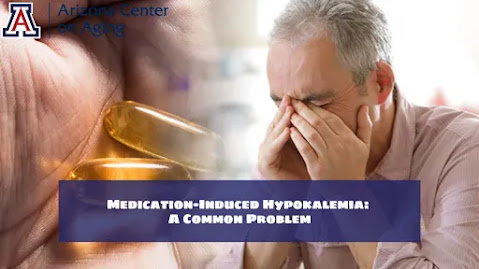Medication induced hypokalemia common problem
One of the most frequent electrolyte problems observed in both outpatient and inpatient treatment is hypokalemia. It is prevalent in elderly persons, and being older is linked to a much higher frequency of hypokalemia. Many different medical disorders can result in hypokalemia, and the most prevalent medications that do so will be discussed in this Elder Care topic.
Although there have been
accounts of elderly persons having severe weakness, hypokalemia is typically
asymptomatic. The most frequent cause of hypokalemia is diuretic medication,
which results in renal loss of potassium. It can happen with both loop
diuretics like furosemide and thiazide-type diuretics. Beta-adrenergic
bronchodilators and other sympathomimetic medications stimulate a transfer of
potassium from the serum into cells, reducing blood potassium levels, by
generating renal salt and fluid retention, the mineralocorticoid
fludrocortisone is used to treat orthostatic hypotension brought on by
autonomic dysfunction in Parkinson's disease or other disorders.
Read more: https://uofazcenteronaging.com/care-sheet/providers/medication-induced-hypokalemia-common-problem/




Comments
Post a Comment